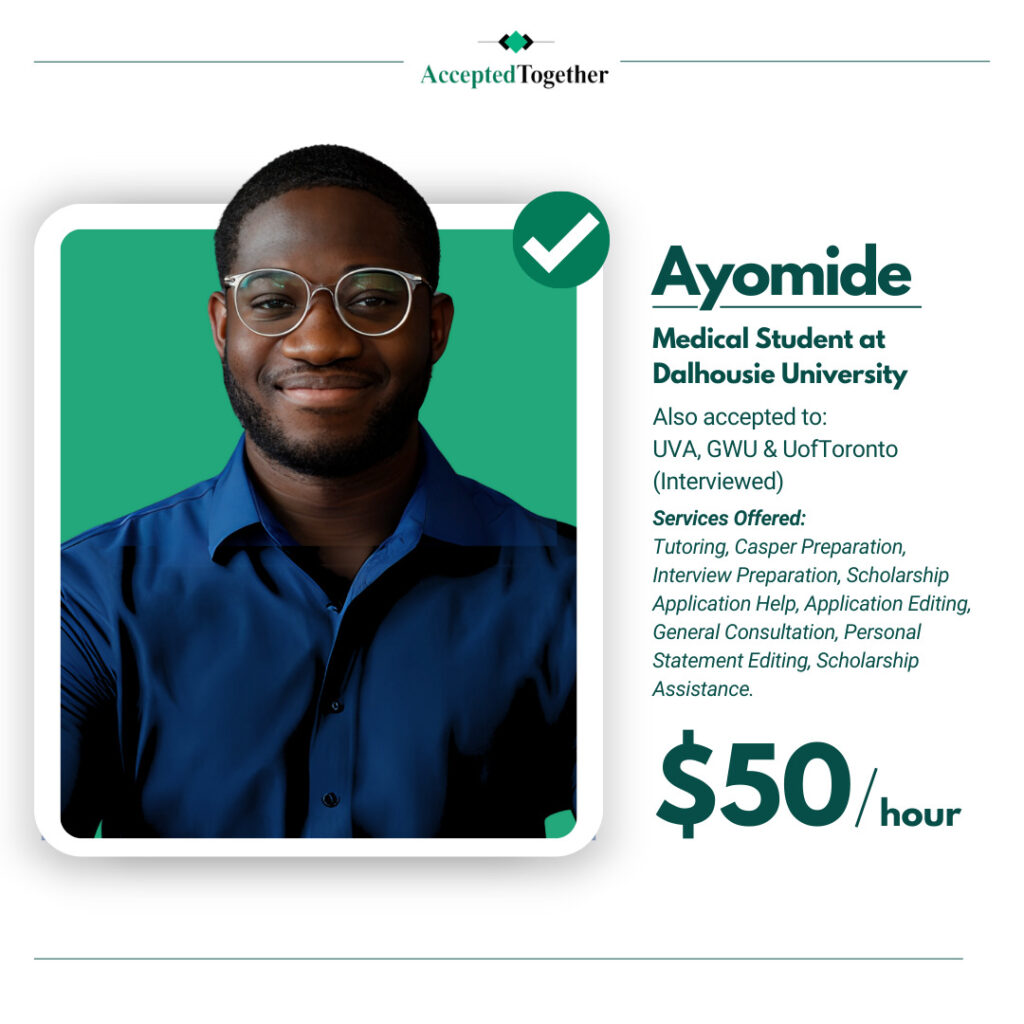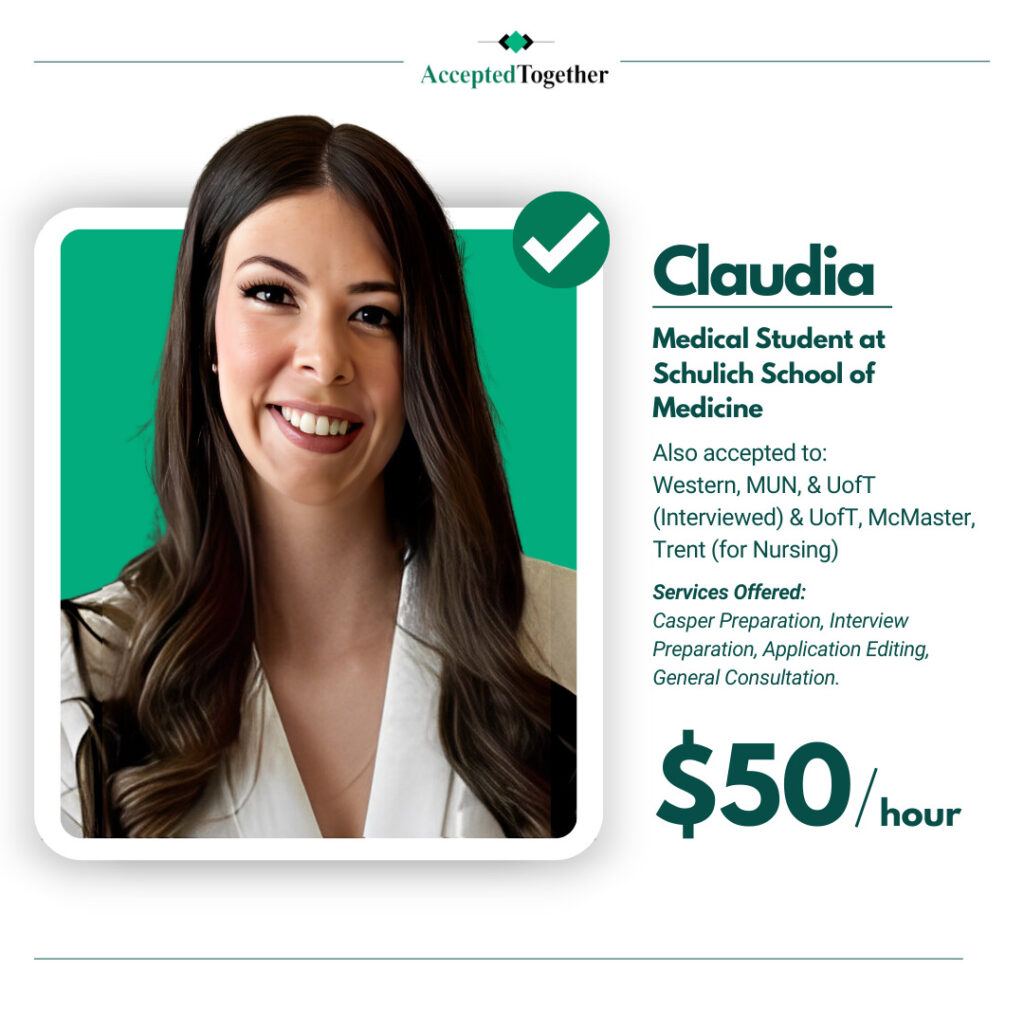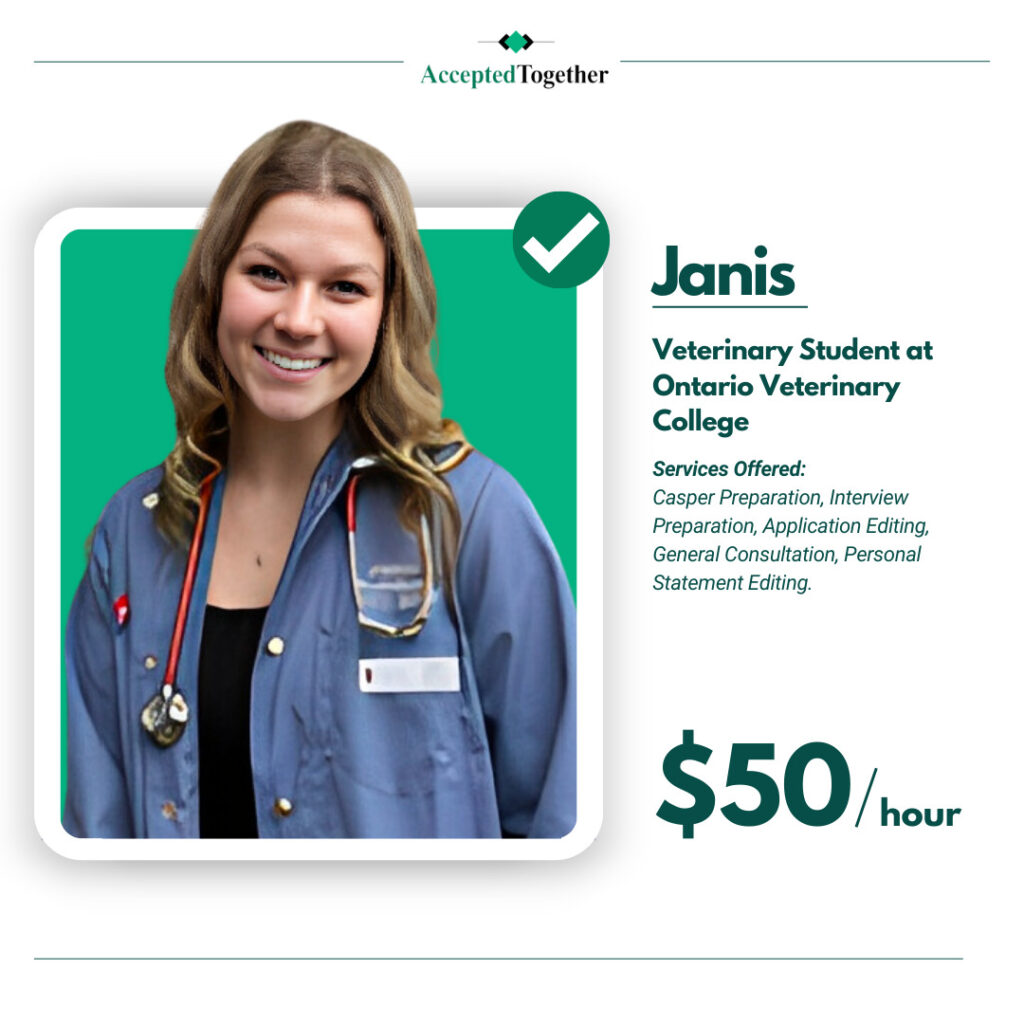Table of Contents
Click here to see our full OMSAS guide that covers all aspects of the application!
What the Confidential Assessment Form (CAF) Is
The Confidential Assessment Form (CAF) is an essential component of the Ontario Medical School Application Service (OMSAS) for applicants to medical schools in Ontario (including the University of Toronto, McMaster University, Western University, the University of Ottawa, Queen’s University, and the Northern Ontario School of Medicine).
It replaces the traditional letter of reference. The purpose of the OMSAS CAF is to provide a standardized way for referees to provide information about applicants that is uniform and meets the specific requirements of admissions committees. To achieve this, the CAF consists of 4 questions that are designed to help admissions committees assess an applicant’s suitability to become a physician.
It is crucial to choose referees who know you well and can answer the CAF questions thoroughly. This ensures that the information they provide on your behalf is accurate, insightful, and ultimately enhances the way that the admissions committees perceive you. Ideally, you should choose a mix of referees who, collectively, can speak to your academic abilities, professional qualities and skills, personal traits, and suitability for medicine, on a holistic level.

The CAF Questions
The OMSA CAF consists of a set of 4 questions specifically tailored to gather information about the applicant’s suitability for the medical profession. These questions are as follows:
- Would this applicant make a good physician?
- Rate the applicant on each of the following attributes:
- Communication skills
- Problem-solving skills
- Professionalism
- Empathy
- Identify and comment on 1 area of improvement for the applicant.
- Share any other information you feel may be relevant to a medical school’s admission committee.
Click to see hundreds of consultants who can mentor you:


Requirements by Medical School
The standard requirement, shared by all medical schools in Ontario, is that applicants provide three different references: one from an academic- or employment-related referee, one from a non-academic referee, and one from a referee of the applicant’s choosing. However, in addition to this standard requirement of three referees, some medical schools in Ontario have specific requirements for additional CAFs from certain applicants. The University of Toronto and Queen’s University are two such schools.
For the Queen’s University School of Medicine, MD/PhD and MD/MSc applicants are required to submit two additional confidential assessment forms that focus on their research accomplishments and potential to become physician-scientists. Additionally, Queen’s-Lakeridge Health MD Family Medicine Program applicants need to submit two additional confidential assessment forms as part of their application.
The University of Toronto also has unique requirements for MD/PhD applicants, requiring additional references to be submitted for the MD/PhD portion of their application. Furthermore, graduate applicants for the University of Toronto are required to provide the contact information of a graduate verifier who can confirm the nature and completion date of the applicant’s graduate degree.
It is important for applicants to carefully review the reference requirements of each medical school they’re applying to and to ensure they meet all the necessary criteria. Further details regarding these requirements can be found on each school’s respective websites or through the Ontario Medical School Application Service (OMSAS) portal.
Identifying Potential Referees
When it comes to submitting CAFs for medical school applications, one of the most crucial steps is identifying potential referees. These individuals play a vital role in providing admissions committees with insight into your abilities and potential as a medical school candidate.
Types of Referees
For the sake of OMSAS and the CAF, referees fall broadly into two categories: academic and employment-related referees, and non-academic referees. One of your three referees must be an academic or employment-related referee.
This could be a professor, research supervisor, or employer. Academic referees should be able to speak to your academic performance and academic work ethic, while employment-related referees may be better suited to speaking about your professionalism and job-specific skills. The second of your three referees must be a non-academic referee.
This could include professionals who have worked closely with you outside of an academic setting, such as a supervisor from a volunteer organization, a mentor in artistic endeavors, or a coach from a sports team. This referee can provide valuable insights into your personal qualities, leadership skills, and commitment to community service.
Your third and final referee can be anyone of your choosing. This should be someone who knows you well and can provide a different perspective on your abilities and character that has not been covered by your other two referees. By carefully considering the different types of referees available and selecting individuals who can provide meaningful assessments, your CAFs can truly highlight your strengths and potential as a future medical student.
What Makes a Good Referee

First and foremost, a good referee should have direct knowledge of your performance, whether they know you in an academic or non-academic capacity. They should have observed your abilities first-hand and be able to provide specific examples of your strengths and accomplishments.
In addition to being able to attest to the quality of your performance, a good referee should also be able to comment on your personal qualities, leadership skills, and passion for medicine. Such insights into your character, dedication, and ability to work well with others can add an extra layer of depth to your application.
Lastly, each of your three referees should be able to provide a different perspective on your abilities and character. Selecting a diverse range of referees will help you achieve this, resulting in a set of CAFs that provide a holistic picture of you as a well-rounded applicant.
Overall, a good referee for the CAF is someone who can provide detailed, personalized, and honest assessments of your abilities, character, and potential for success in a career in medicine. Their contributions play a crucial role in the admission process and can help set you apart from other applicants.
Click to see hundreds of consultants who can mentor you:


Communicating with Referees

Once you’ve identified the individuals you want as your referees, the next step is communicating with them effectively.
Asking People to be Referees
The first step is to reach out to them personally, either through their university email address or their personal email address if provided, to discuss your application and request their participation as a referee. In your communication, provide a brief overview of your goals and aspirations in the medical field, emphasizing why you believe they would be an excellent referee for your application.
Be sure to inquire about their availability and confirm their willingness to complete the CAF by the designated deadline. To facilitate the process, it can be helpful to provide your referees with any necessary information, such as the deadline for submission of the CAF and details about how to complete it.
Explain that the CAF will be sent to them as a link and inform them that the CAF consists of four specific questions that they will need to answer, rather than writing a letter of reference from scratch. Highlight that separate letters of reference are not accepted. Additionally, consider sharing relevant documents, such as your resume and transcript, to refresh their memory about your accomplishments and experiences.
To allow your referees ample time to respond and complete the CAF, reach out to your referees as early as possible. OMSAS recommends sending requests for references by September 15, 2023, but it is advisable to do this well in advance of the deadline. This will give you time to ask other individuals if your initial choices do not respond or decline to be referees. By following these steps and providing the necessary information, you can increase the likelihood of securing strong references for your medical school application.
Important tip that is crucial for the OMSAS CAF and other references you need: Do not hesitate to express to your referees what you hope they will emphasize in their comments- this is very important! Share any specific experiences or qualities you would like them to highlight, as well as any achievements or challenges you have overcome. Base it on the questions that they have to answer. Make sure to make it clear that they can edit it in any way they like and you are just providing the information to make their workload lighter. This will provide them with guidance and help them craft a more personalized assessment. They would definitely appreciate you making their workload easier!
Following Up with Referees

Throughout the application process, you should maintain open lines of communication with your referees, answering any questions they may have and expressing gratitude for their support. By cultivating a positive and professional relationship with your referees, you can ensure a smooth and effective reference process that strengthens your application to medical school.
Following up with referees is essential to ensure that they have received all the necessary information, are aware of the deadline for submitting the OMSAS CAF, and are on track to complete it on time. Here are the key steps to effectively following up with your referees:
- Send a thank-you email: Express your gratitude for their willingness to provide a reference and briefly reiterate the importance of their assessment. This email serves as a reminder and sets a positive tone for future communication.
- Provide additional information: If your referees request any additional information or context about your application, promptly respond to their queries. This shows your commitment and cooperation, and enables them to write a more accurate and comprehensive assessment.
- Remind them of the deadline: As the submission deadline approaches, send a friendly reminder to ensure that your referees submit the CAF on time. Emphasize the significance of meeting the deadline for the smooth processing of your application.
You can check the status of your CAFs at any time by logging into your OMSAS account. You will be able to see whether you referee has viewed the CAF, whether they have started (but not yet submitted) the form, or whether the CAF has been submitted. If a significant amount of time has passed since your referee agreed to write a reference for you, but they have not started the CAF and have been unresponsive despite your efforts to follow up, it is possible to reset that reference and seek an alternative individual to provide the assessment. Note that you will only be able to reset your reference if the referee has not yet started the CAF.
Final tip: Sending gift cards or other tokens of appreciation (e.g. a thank you card) before the CAF is submitted is very controversial and may make it look like you are trying to “buy” your reference. If you do decide to send one (it’s by no means mandatory), it’s much better if you send it after the reference is submitted. If you need another CAF or other references filled next year, this gesture may help you look more positive in the eyes of the referee. However, some referees would still see it you trying to “buy” their opinion. Tread carefully!
Good luck with your OMSAS CAF from our team at AcceptedTogether! If you require help deciding who to use for a referee for the CAF, don’t hesitate to reach out to any of our consultants by clicking here. Our consultants can help give you an outsider’s opinion and advice you on what experiences you can ask your CAF referee to highlight for optimal OMSAS success to help you become a future MD.





